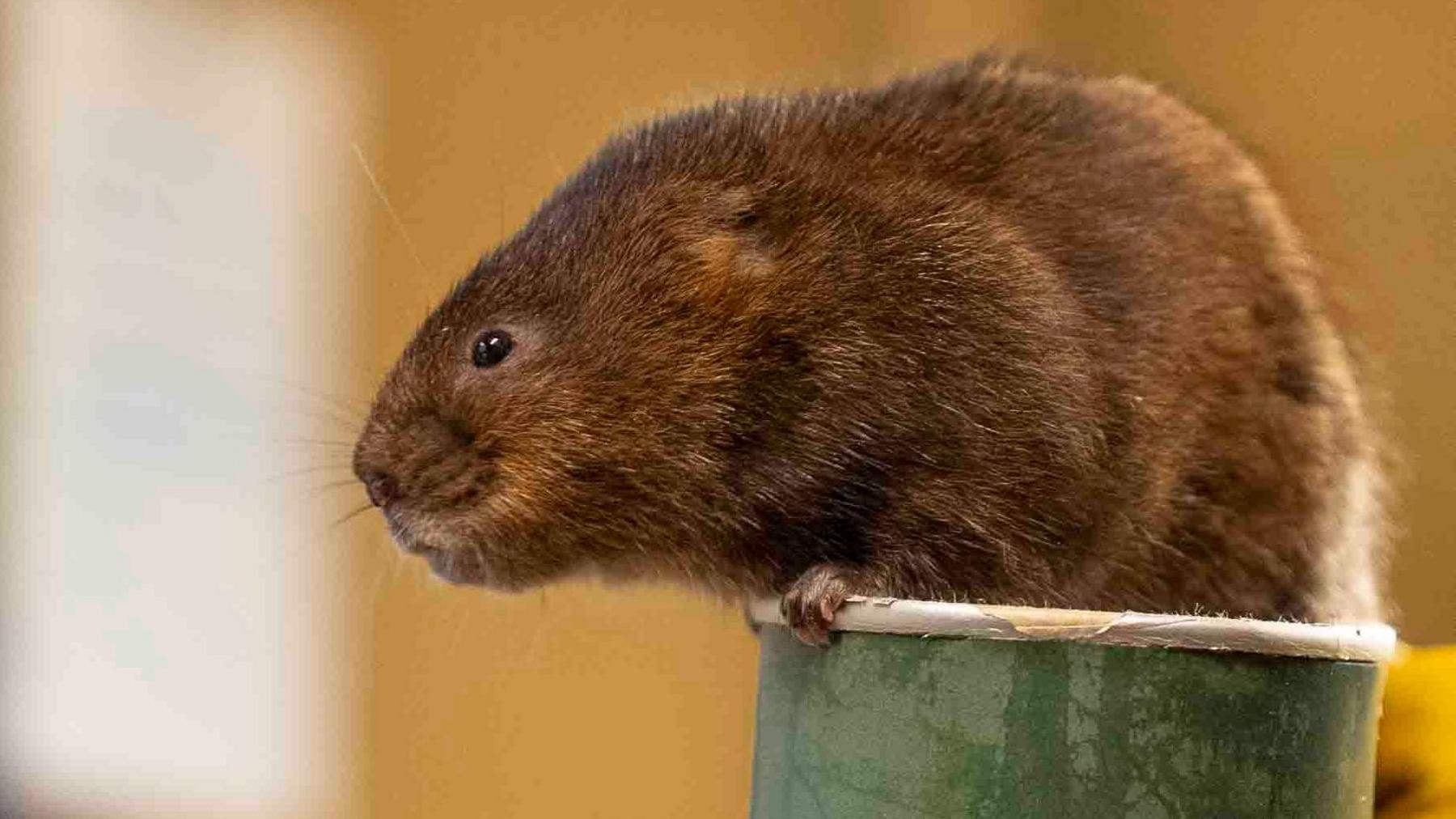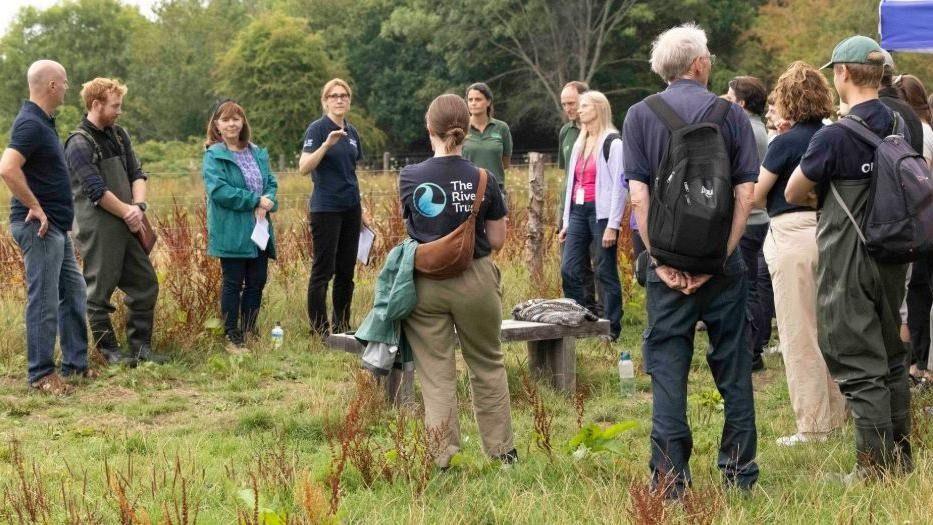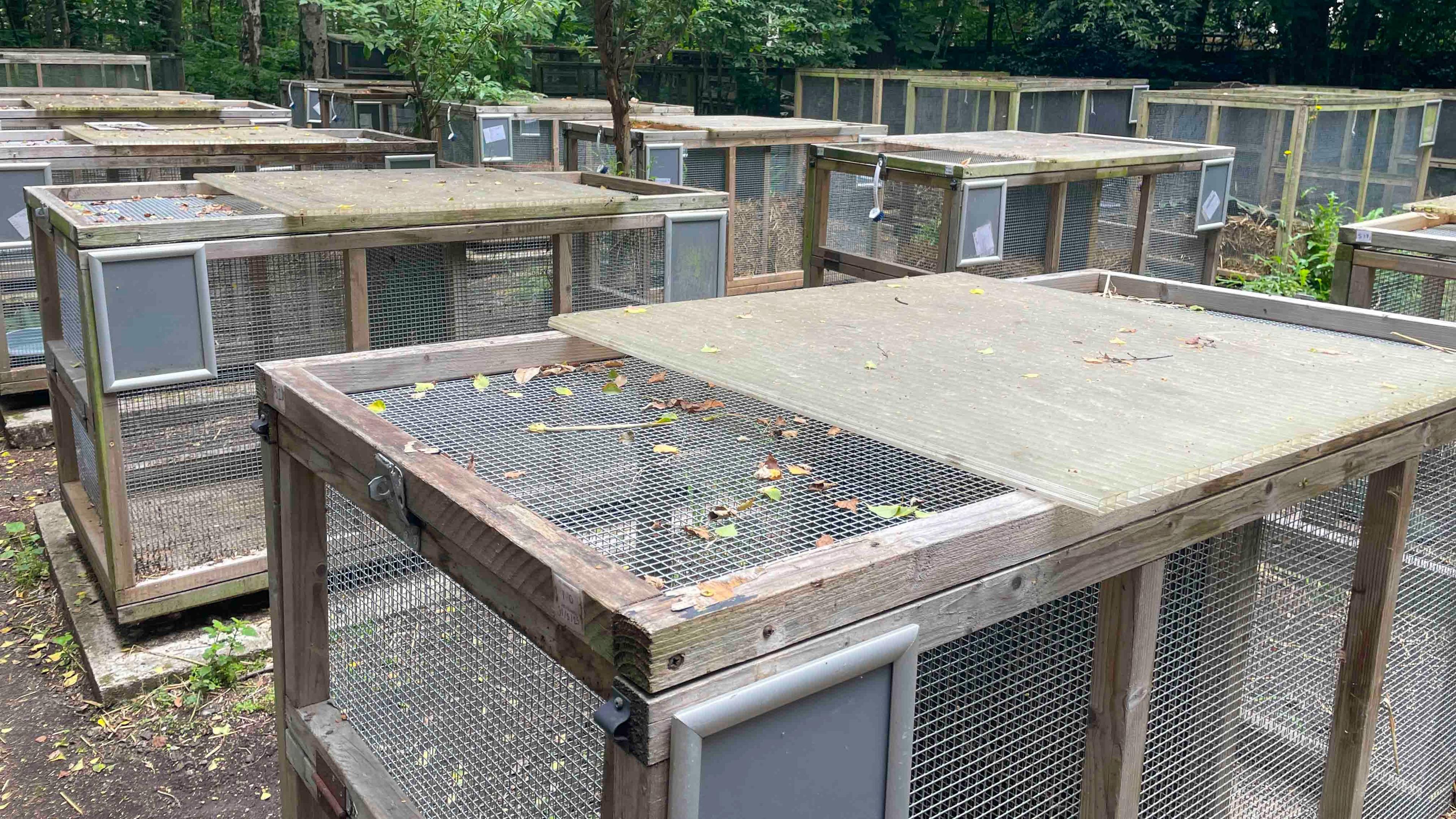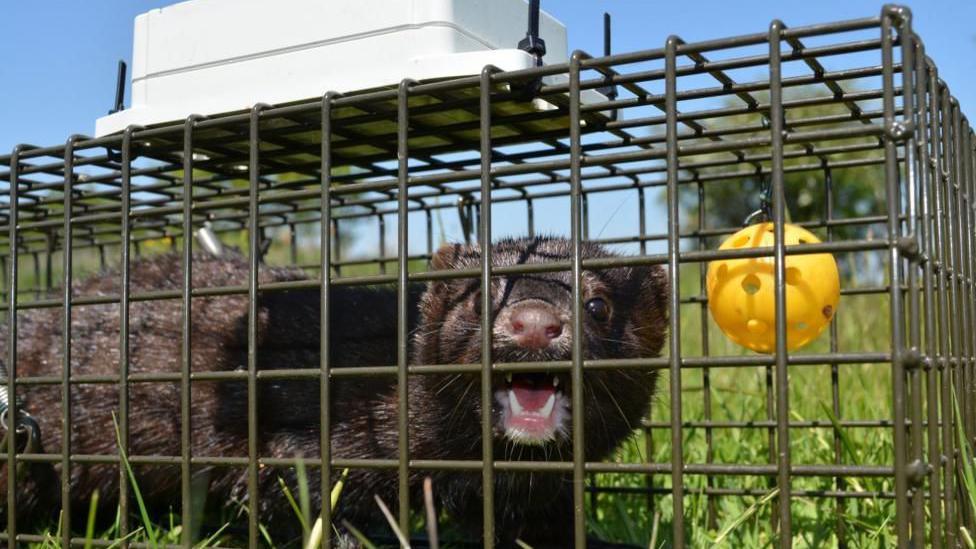Fifty water voles released to boost Surrey numbers

A water vole bred in captivity at the Wildwood Trust in Kent
- Published
A colony of 50 water voles has been released into the wild in Surrey, where the species has been locally extinct for 20 years.
The voles, an endangered species, were bred in captivity at the Wildwood Trust in Kent, which specialises in breeding the mammals.
They were released into the Chamber Mead wetlands in Epsom, created over the past two years to filter sewage pollution and other run-off out of a local stream before it enters the Hogsmill River.
Bella Davies, chief executive of the South East Rivers Trust, which led the project, said: "Putting the water voles back really is the cherry on the icing on the cake."
She added: "We've had to bake that cake and that's taken many many many years so we're just so excited to be here and see the water voles going into their new habitat."

Volunteers and project partners gather for the release of the water voles
Water voles were once widespread across the UK, inhabiting streams, rivers, canals, and wetlands.
However, their numbers have declined dramatically since the 1970s due to habitat loss and predation by the American mink.
Mink were brought to the UK in the last century for fur farming, but those that escaped and others that were deliberately released by animal rights activists established themselves in the wild.
Now there are projects underway to bring water voles back and control the mink.
Paul Whitfield, chief executive of Wildwood Trust, said: "Water vole captive breeding and reintroduction projects are incredibly important for the species.
"This is a species that has declined by 90%. We're really losing these animals. They're endangered."
He added: "They don't travel very far so it's really essential that when we find good habitat we are able to put the water voles back to establish a population."

The water vole breeding centre at the Wildwood Trust near Canterbury
It is hoped the released voles will establish themselves in the newly created wetlands, which catch polluted water flowing down Green Lanes Stream.
Plants will act as a filter before the water enters the Hogsmill River.
Chief executive of Epsom and Ewell Borough Council, Jackie King, said the area was a "model for successful habitat restoration".
- Published24 October 2024
